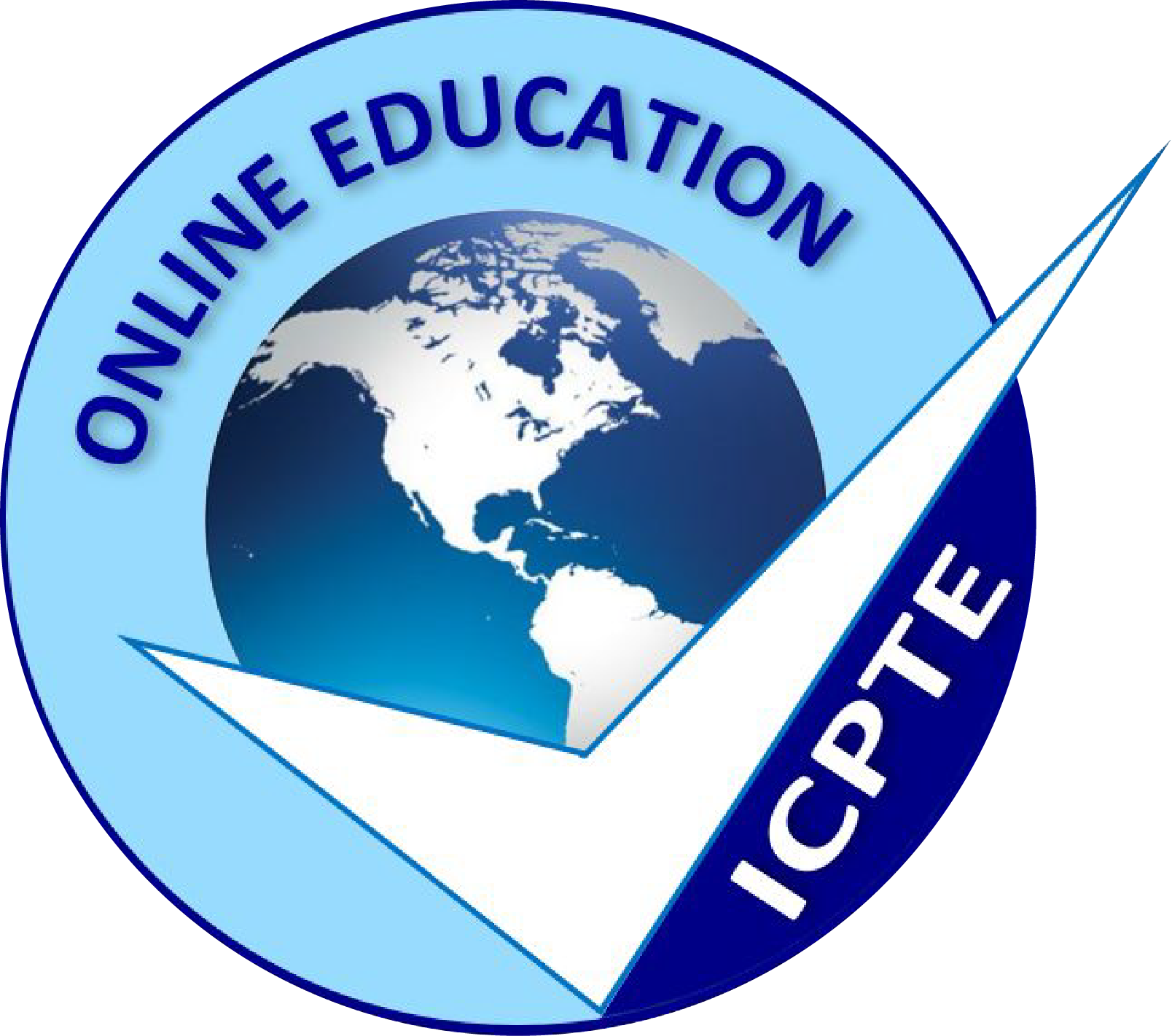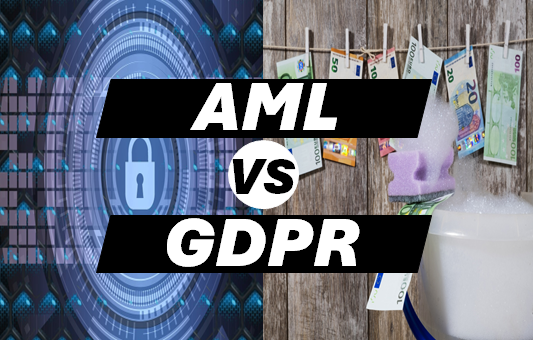The Institute of Continuous Professional Training and Education (ICPTE) offers an extensive variety of Self-Paced Online and Live Online seminars created by Professional and qualified Instructors with years of experience in their field.
The ICPTE platform offers the flexibility to watch online self-paced seminars at Your own convenience, at Your own pace, in Your own time and place. Start watching a seminar today and complete it at Your own time. You can have access from anywhere. All self-paced online seminars are in the form of PowerPoint presentations and a number of them includes video.
AML vs GDPR Training – Choosing the Right CPD Online Course
Introduction
In the world of professional compliance, AML (Anti-Money Laundering) and GDPR (General Data Protection Regulation) training have become cornerstones of regulatory education. For professionals in Cyprus and across the EU, both areas are not only relevant but, in many cases, legally required.
Yet, many professionals ask: “Should I focus on AML training, GDPR training, or both?” The answer depends on your profession, regulatory obligations, and career goals. This article breaks down the differences between AML and GDPR training, explains who needs each course, and shows how you can meet your CPD/CPT requirements efficiently through online professional training.
What is AML Training?
Anti-Money Laundering (AML) training focuses on the prevention of financial crime, terrorist financing, and suspicious transactions. In Cyprus, AML obligations are aligned with the EU’s AML Directives and enforced by regulators like CySEC (Cyprus Securities and Exchange Commission), ICPAC (Institute of Certified Public Accountants of Cyprus), CBA (Cyprus Bar Association) and the Central Bank of Cyprus.
Key Topics in AML Training
- Understanding the EU AML Directives and their application in Cyprus.
- Know Your Customer (KYC) and Customer Due Diligence (CDD) processes.
- Identifying suspicious activity indicators.
- Obligations for reporting suspicious transactions (STRs).
- Role of compliance officers and MLROs (Money Laundering Reporting Officers).
Who Needs AML Training?
- Banking and financial services staff (compliance officers, risk managers).
- Lawyers and accountants involved in client onboarding and transactions.
- Investment firms and insurance providers subject to AML regulation.
- Real estate professionals involved in high-value transactions.
👉 For these groups, AML training is not optional—it’s a regulatory requirement under CySEC, ICPAC, CBA and CBC supervision.
What is GDPR Training?
The General Data Protection Regulation (GDPR) is the EU’s framework for safeguarding personal data. Since its enforcement in 2018, GDPR has reshaped how organizations handle, store, and share personal information.
Key Topics in GDPR Training
- Core principles of GDPR (lawfulness, transparency, accountability).
- Rights of data subjects (access, erasure, portability).
- Data processing rules and consent requirements.
- Data breaches and reporting obligations.
- Role of the Data Protection Officer (DPO).
Who Needs GDPR Training?
- Human Resources professionals handling employee data.
- IT and cybersecurity teams managing data security.
- Law firms and consultants advising on data privacy compliance.
- Marketing and sales staff using personal data for outreach.
- Healthcare professionals processing sensitive patient data.
👉 GDPR training is essential for any professional handling personal information, regardless of industry.
AML vs GDPR: Key Differences
While both AML and GDPR fall under the umbrella of compliance training, they cover different aspects of regulation.
| Aspect | AML Training | GDPR Training |
| Focus | Preventing money laundering & financial crime | Protecting personal data & privacy |
| Key Laws | EU AML Directives, Cyprus AML Law | EU General Data Protection Regulation (GDPR) |
| Main Learners | Financial sector, lawyers, accountants | HR, IT, marketing, healthcare |
| Obligations | Customer due diligence, transaction monitoring, STRs | Lawful data processing, data rights, breach reporting |
| Risk Area | Financial crime & regulatory fines | Data breaches & reputational damage |
In short:
- AML training = financial crime prevention.
- GDPR training = data privacy protection.
Both are critical, but the choice depends on your role and the regulations affecting your sector.
Which CPD Course Do You Need?
The decision between AML and GDPR training comes down to your professional responsibilities.
If You Work in Finance, Law, or Real Estate → AML Training is Essential
- AML rules directly apply to professionals handling client funds, investments, or property.
- Regulators like CySEC, ICPAC, CBA and the Central Bank of Cyprus require ongoing AML education.
If You Handle Customer or Employee Data → GDPR Training is Essential
- Any professional managing personal or sensitive data is subject to GDPR.
- This applies to IT staff, HR managers, healthcare providers, and marketers.
If You Overlap Both Areas → Take Both Courses
- Many professionals (e.g., compliance officers, consultants, corporate lawyers) must understand both AML and GDPR.
- Example: A compliance officer at a financial institution must ensure AML checks are completed while also ensuring data handling complies with GDPR.
Why Online CPD Training is the Best Option
In Cyprus, professionals often balance demanding schedules with regulatory requirements. Online CPD training provides the most efficient solution.
Advantages of Online AML & GDPR Training
- Flexibility: Learn at your own pace with pre-recorded modules.
- Interactivity: Join live sessions for Q&A with expert trainers.
- Recognition: Earn CPD/CPT hours accredited by regulators.
- Convenience: No need to travel to seminars – learn from anywhere.
- Documentation: Receive digital certificates for compliance audits.
For example, a lawyer may take an AML refresher course in the evening, while a data officer may schedule a GDPR live session during working hours. Both earn accredited hours without disrupting their work.
How ICPTE Helps Professionals Choose the Right Course
The Institute of Continuous Professional Training and Education (ICPTE) offers both AML and GDPR courses online, designed specifically for Cyprus professionals.
ICPTE’s Advantages
- Accredited Courses: Fully recognized for CPT/CPD hours.
- Dual Formats: Choose between pre-recorded or live webinars.
- Tailored Content: Courses reflect Cyprus-specific regulations under CySEC, ICPAC, CBA and EU directives.
- Variety: Beyond AML and GDPR, ICPTE also covers MiFID II, product governance, and compliance risks.
👉 Explore ICPTE’s AML training courses and GDPR training options to see which fits your needs.
Case Examples: Who Should Take What?
1. Lawyer at a Limassol firm
- Needs AML training for compliance with client onboarding.
- GDPR training may also be beneficial if the firm handles client personal data.
2. HR Manager in Nicosia
- GDPR training is essential for handling employee data.
- AML training not required unless the company falls under AML obligations.
3. Financial Advisor at a CySEC-regulated firm
- AML training is mandatory.
- GDPR training is recommended due to client personal data processing.
4. IT Specialist in a healthcare company
- GDPR training is crucial for safeguarding patient data.
- AML training is not required.
Conclusion
Both AML and GDPR training play vital roles in ensuring regulatory compliance, but the course you need depends on your profession and responsibilities.
- AML training is essential for financial, legal, and real estate professionals.
- GDPR training is critical for anyone handling customer or employee personal data.
- Some professionals must take both, particularly in compliance-heavy industries.
With ICPTE’s online CPD training platform, you don’t have to choose convenience over compliance. Whether you need AML, GDPR, or both, ICPTE offers accredited, flexible, and affordable training designed for Cyprus professionals.
👉 Get started today with ICPTE’s online AML and GDPR training courses.


